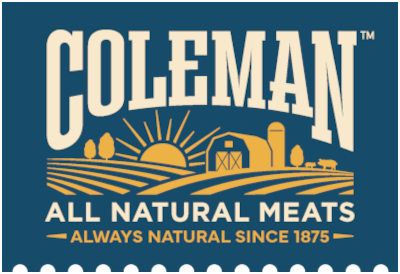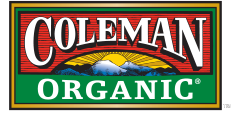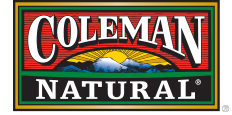
FAQs
Below is a list of frequently asked questions.
If you need more information, please contact us.
The basic processes are the same. However, processing aids (rinses and washes used to cleanse the chicken and reduce naturally occurring bacteria) and sanitizers (used to clean the plant and processing equipment) have to be approved for organic production.
Organic production strives to grow food in a holistic system that works with nature, rather than using synthetic chemicals (such as chemical fertilizers and pesticides), growth promoting drugs or genetic engineering.
When you purchase USDA Certified Organic poultry, you’re assured that those animals were not exposed to pesticides, herbicides or chemical fertilizers; were raised on a diet of organic, non-GMO grains; were raised without antibiotics or growth promoting drugs; and were able to experience sunlight and fresh air with free-range access to outdoor pasture areas.
All organic products are raised without antibiotics, but we also sell no-antibiotics-ever products from animals that are not raised organic. We have a very strict definition for no-antibiotics-ever, which means animals will not receive antibiotics at any stage in their lives, including within the egg for poultry.
Our USDA certified organic chicken goes the extra steps to include an organic diet with non-GMO grains and free-range outdoor access, in addition to no-antibiotics-ever.
Our Organic chicken is USDA certified, which means we meet the specific requirements of the National Organic Program. Organic certification is provided through accredited, independent auditors. We use Quality Assurance International, one of the leading providers of organic certification services worldwide.
Federal law prohibits the use of added hormones or steroids in poultry and pork production, but we don’t use them in any of our livestock.
As part of our commitment to animal welfare, we will not withhold any medically appropriate treatment. However, if antibiotics are used, the meat from those animals will not be sold under organic and no-antibiotics-ever labels.
No-Antibiotics-Ever provides assurance that the animals were raised in a program that does not contribute to the potential rise of antibiotic-resistant bacteria associated with the widespread use of antibiotics in agriculture; that the animals were raised in an environment that doesn’t require the administration of antibiotics to keep them healthy; and that animals were able to grow at a normal rate.
Since we’re not using antibiotics for disease prevention, we have to maintain more stringent standards for animal husbandry for both the parents and their offspring. We take extra steps to prevent disease and support animal health, such as vaccinations and the use of probiotics that work with the animal’s own immune and digestive systems. These steps require additional work and expense compared to the common practice of relying of antibiotics.
Vaccines work with the body’s natural defenses, and are approved for organic production. Just as with the vaccines used in humans, vaccines in animal agriculture foster natural immunity against disease. Antibiotics, on the other hand, attack infections, and also promote growth.
Our organic and free-range chickens have access to an outdoor pasture area that is at least half the square-footage of the chicken house, and usually equal to the size of the house. The pasture typically runs down one side of the house. We provide access to the outdoors approximately every 40 feet, and have windows about every 50 feet along the length of the house. We also provide shade awnings, access to water and roosts and other enrichments. A combination of soil and grass areas lets the birds exhibit natural behaviors, such as dust bathing and pecking.
The birds are given access to the outdoors during daylight beginning at approximately four weeks of age, when they are fully feathered to protect them from sun and temperature. They are returned to the house at night to roost, where they are protected from predators and cold night air. Birds are not outside if weather conditions are not healthy or comfortable for them.
Free-range is a requirement for organic certification, but not all free-range chickens are raised organic.
Our organic chickens are raised at farms in Pennsylvania, Delaware and Maryland.
Our No-Antibiotics-Ever chickens are raised on farms in the Midwest, Mid-Atlantic and Southeast. Our turkeys are raised on family farms in the Midwest and beef comes from animals raised on family farms primarily in Western states.
Conventional livestock diets typically use animal by-products – including blood meal and bone meal – as an inexpensive source of protein. Our all-vegetarian diet doesn’t include any animal by-products, and we believe that results in great tasting poultry. The all-vegetarian diet is carefully blended to ensure balanced nutrition for the animals.
Organic feed ingredients are considerably higher priced than conventional grains raised with chemicals and GMO seeds. All-vegetarian diets are more expensive than ones that use inexpensive animal by-products. Not using antibiotics means we have to take extra steps to help prevent disease, and it takes a lot more effort. But we think better living conditions for the animals, great tasting products and practices that are better for the planet are worth it. And we think you’ll agree.



